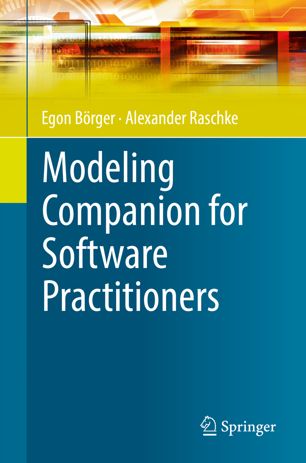

Most ebook files are in PDF format, so you can easily read them using various software such as Foxit Reader or directly on the Google Chrome browser.
Some ebook files are released by publishers in other formats such as .awz, .mobi, .epub, .fb2, etc. You may need to install specific software to read these formats on mobile/PC, such as Calibre.
Please read the tutorial at this link: https://ebookbell.com/faq
We offer FREE conversion to the popular formats you request; however, this may take some time. Therefore, right after payment, please email us, and we will try to provide the service as quickly as possible.
For some exceptional file formats or broken links (if any), please refrain from opening any disputes. Instead, email us first, and we will try to assist within a maximum of 6 hours.
EbookBell Team

4.7
66 reviewsThis book uses a variety of applications to illustrate a modeling method that helps practitioners to manage complex software-intensive systems. The proposed method relies on the combination of its abstraction concept and its operational character, with behavioral models in the precise and simple form of Abstract State Machines (ASMs).
The book introduces both the modeling method (Part I) and the available tool support (Part II): In Part I the authors detail (using numerous examples) how to construct, explain, debug, explore, extend and reuse accurate system design models, starting from scratch. Only an elementary knowledge of common mathematical (including set-theoretic) notation and some basic experience with computational processes (systems, programs, algorithms) is assumed. Part II then shows how the modeling method can be supported by implementing tools that make design models executable and debuggable.
To illustrate how to build, debug and maintain systems and to explain their construction in a checkable manner, a general, problem-oriented refinement method is adopted to construct system models from components. The method starts with abstract models and refines them step by step, incrementally adding further details that eventually lead to code.
Intended for practitioners who build software intensive systems, and students specializing in software engineering, it can be used both for self-study and for teaching, and it can serve as a reference book. Exercises are included to help readers check their understanding of the explained concepts. For many models defined in the book, refinements to executable versions can be downloaded for experimental validation from the book’s website at http://modelingbook.informatik.uni-ulm.de